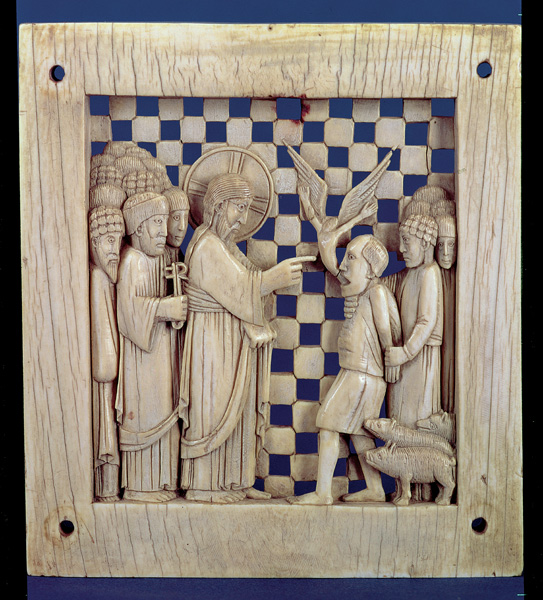Image Details

Erich Lessing
Obeying Jesus, a winged demon flees from the mouth of a possessed Gadarene (who is restrained by one of the disciples, right), in this 10th-century ivory tablet from Milan, Italy. The ancient world was full of demons. Throughout the ancient Near East, demons were thought to be the cause of much human misfortune and illness. The incident at Gadara (related in Mark 5:1–20; see also Luke 8:26–39 and Matthew 8:28–34) is one of several occasions in the New Testament when Jesus or his disciples establish their credibility by expelling demons from the sick. Yet, strangely, in the Hebrew Bible the role of demons is very limited. As William H.C. Propp shows in the accompanying article, the Israelites made little room for other powers in the cosmos besides Yahweh: When people fell ill or suffered calamities, it was generally because of sin, not demons. And when harmful spirits do appear, they often do so as manifestations of God or as agents of his will.
